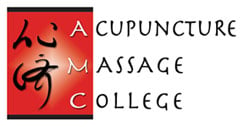HYPNOTHERAPY MAY AID IN LESSENING NON-CARDIAC CHEST PAIN
Hypnotherapy may relieve severe chest pain that is not caused by a heart condition, known as non-cardiac chest pain (NCCP), suggests a small study in the September issue of the medical journal Gut. The cause of non-cardiac chest pain is unknown, although common factors include acid reflux, panic disorders, anxiety, and depression. Hypnotherapy may be beneficial in reducing non-cardiac chest pain through suggestive relaxation techniques.
Researchers at Wythenshawe Hospital in Manchester divided 28 patients with the condition into two groups. One group received 12 sessions of hypnotherapy over 17 weeks; the other group was given “supportive therapy” plus a placebo. Hypnotherapy was administered to 15 of the patients, induced by eye closure, followed by progressive muscular relaxation and standard deepening techniques. Chest-focused suggestions for pain reduction and health improvement were integrated into sessions. The 13 patients receiving supportive therapy were encouraged to discuss physical symptoms and emotional issues.
Twelve (80 percent) of the 15 hypnotherapy patients experienced an improvement in pain compared with only three of 13 (23 percent) receiving supportive therapy. This was associated with a significantly greater reduction in pain intensity although not frequency, the researchers reported. Hypnotherapy also produced a significantly greater improvement in self-assessment of overall well being for 73 percent of the hypnotherapy patients compared with 23 percent of supportive therapy patients.
Hypnotherapy was also effective in reducing the use of medication prescribed to treat the condition, although it had no effect on anxiety or depression. “The fact that such clear-cut differences in the chest pain outcome favoring hypnotherapy, despite the relatively small size of the study, indicates that this form of treatment could have considerable potential in NCCP,” the authors concluded.
"Written by Rev. Dr. Richard Browne
http://www.amcollege.edu

 (305) 595-9500
(305) 595-9500






